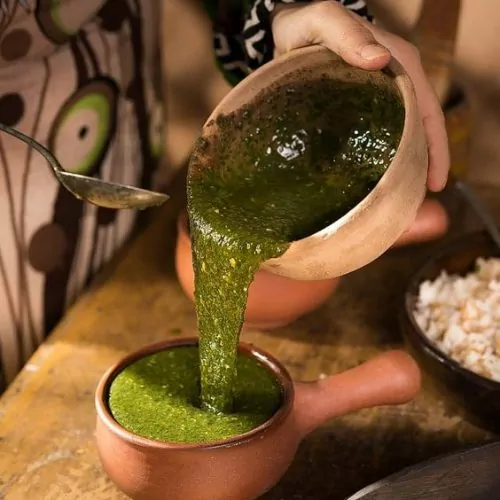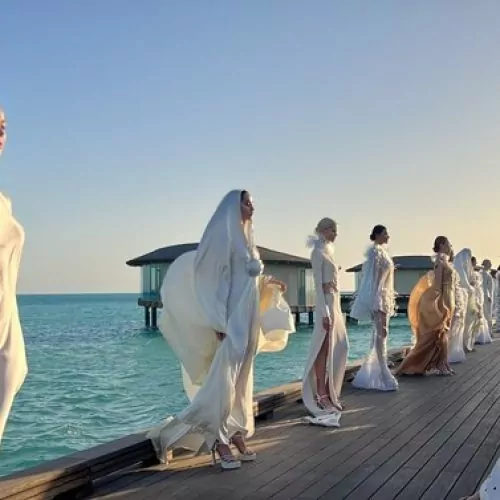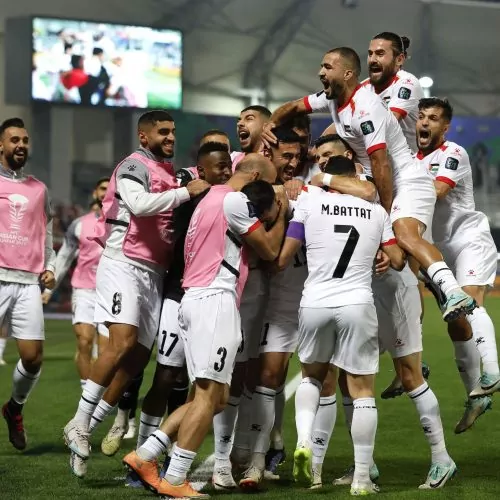For the past seven months, a tragedy has unfolded, going largely ignored by the global community. The people of Palestine, who have been facing a genocide since Oct. 7, have been met with a level of indifference that is truly disheartening. As the situation on the ground worsens by the literal hour, and as international governments remain largely inactive, the suffering of Gazans deepens and their cries for help keep falling on deaf ears. It is for that exact reason that Voices For Gaza (VFG) was born.
The brainchild of French-based collective La Culture Pour Un Cessez Le Feu— which translates to Culture For a Ceasefire in English— VFG is a grassroots movement amplifying the stories and life-experiences of those harshly affected by the ongoing wave of brutality, violence, and bloodshed. By harnessing the power of social media, the online platform aims at “altering the dominant narrative and raising awareness so that both Palestine and the international community can reassess the historical realities of what is happening,” explains Samia Larouiche, one of VFG’s founding members. “We are striving to rehumanize Gazans, who are deprived of their dignity and most basic of freedoms, whilst putting a definitive end to the pervasive impunity that flagrantly violates international law and most human rights principles,” she added.
Having well understood the power, and responsibility, that comes with being a figure of influence, or a public persona, the aid-focused initiative has reached out to a number of A-list celebrities to advocate for immediate humanitarian action, a permanant ceasefire as well as the release of all hostages. The concept, in and of itself, is quite straightforward. Stars from the cultural sector sit directly in front of a camera and read, out loud, testimonies from survivors or reports detailing the extent of the crisis to catalyze tangible change, and to ensure that the people of Palestine are no longer silenced, forgotten, or blamed for their own plight.
“It is the duty of those who are fortunate enough to have a voice to speak up for those who can’t, notably Gazans, whose pleas go unnoticed,” Larouiche told Mille. “Given the inaction of global political leaders, it’s essential we explore alternative routes of dialogue. The world of culture, and more generally speaking, the arts, have historically served as powerful mediums for social and political change as they stir the heart and the mind,” the multi-hyphenate continued.
So far, over 20 internationally acclaimed artists from all over the creative spectrum have lent their voices to the cause, including French fashion designer Michèle Lamy, 2016 César award recipient Oulaya Amara, and Tunisian actress Amira Chebli, who told Mille that she considers it her “duty as a citizen and as an artist to create a major shift in public opinion, although it hasn’t helped achieve a ceasefire until now.”
“We wanted to portray Palestinians through their own words, grief, and poetry,” she said. “As these people are facing a slaughter with so much courage and human values, I thought that amidst the huge media bias, these texts, read by renowned artists, could maybe make them resonate louder and have an impact on those who are still in denial or think that the situation is too complicated to be understood. Nothing is complicated to understand about kids being murdered, doctors unable to save lives, or writers penning their own postmortem poems,” she asserted with conviction.
In her appearance, the North African actress shared a poignant excerpt from a poem written by Refaat Alareer, a Palestinian writer and academic who was fatally murdered following an Israeli airstrike in November 2023. Her recitation, the sole one to be delivered exclusively in Arabic, recounts the author’s wishes if he were to ever to lose his life. Inherently tied to his own fate, his verses resonate with haunting beauty, reminding us of the fragility of one’s existence, especially when faced with the indiscriminate brutality of war, where one’s dreams and aspirations can be shattered in a fraction of a second.
“The poem of Refaat Alareer is tragically beautiful and says so much about the beauty of his soul and about Palestinians in general,” Chebli reflected. “It became a whole symbol for the pro-Palestinian movements worldwide. Many people also reacted to how even more heartbreaking it was to hear his texts in Arabic although it was originally written in English as even our language is now seen as a sensitive tool. Personally, I am thankful to everyone behind this project, as I received so many messages from people who spoke up for the first time after seeing some videos from Voices For Gaza,” she added.
“I hope we keep encouraging people to speak up. I hope that these testimonies reach the hearts and souls of those who can really make a difference and instigate change on the ground. I hope that very soon we won’t have to convince people that what is going on is insane and barbaric and that our next initiatives will be even more efficient and helpful,” she concluded.




